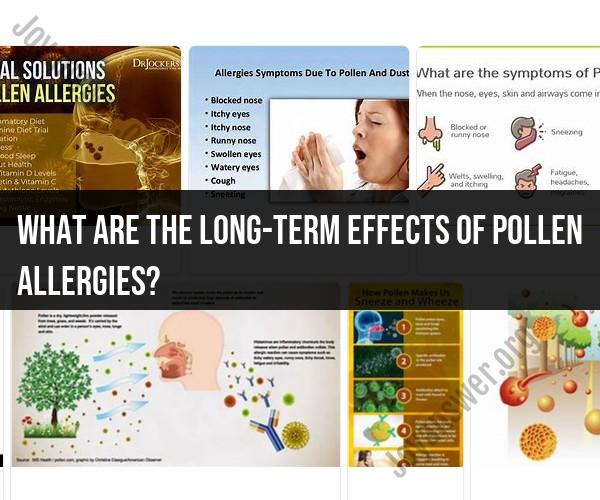What are the long-term effects of pollen allergies?
Pollen allergies, also known as hay fever or allergic rhinitis, can have more than just short-term effects on individuals. In this comprehensive guide, we'll explore the long-term implications of pollen allergies on health and quality of life.
Understanding Pollen Allergies
Pollen allergies are triggered by the body's immune response to pollen from trees, grasses, and weeds. Common symptoms include sneezing, runny nose, itchy eyes, and congestion.
Chronic Allergic Rhinitis
Repeated exposure to pollen can lead to chronic allergic rhinitis, characterized by persistent symptoms that can significantly impact daily life. Ongoing symptoms can affect sleep, work productivity, and overall well-being.
Impact on Respiratory Health
Long-term exposure to pollen can exacerbate respiratory conditions such as asthma. Pollen allergens can trigger asthma attacks, leading to breathing difficulties and reduced lung function.
Quality of Life
Pollen allergies can diminish the quality of life for individuals. Constant discomfort, disrupted sleep, and the need for medications can contribute to decreased enjoyment of daily activities.
Complications and Secondary Infections
Persistent allergic symptoms can weaken the immune system, making individuals more susceptible to secondary infections such as sinusitis and ear infections.
Affecting Children's Development
Children with untreated pollen allergies may experience difficulties in concentration and learning due to the impact of chronic symptoms on cognitive function.
Managing Long-Term Effects
Proactive management of pollen allergies is crucial to minimize long-term effects. Allergen avoidance strategies, medications, and allergy shots (immunotherapy) are options to consider.
Preventive Measures
Preventing long-term effects involves understanding pollen seasons, using air purifiers indoors, keeping windows closed, and practicing good hygiene to minimize allergen exposure.
Consulting Healthcare Professionals
If pollen allergies are causing persistent symptoms, seeking guidance from allergists or immunologists can help tailor a treatment plan to manage symptoms and prevent long-term complications.
Conclusion
Unveiling the long-term effects of pollen allergies underscores the importance of effective management and preventive measures. By understanding the potential impact on health and quality of life, individuals can take proactive steps to alleviate symptoms and improve their overall well-being.













